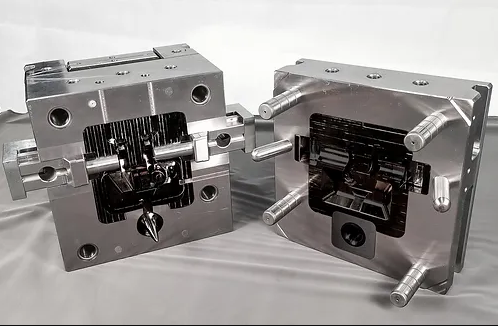Introduction:
In the world of metal fabrication, magnesium has emerged as a hidden gem. With its lightweight properties, excellent strength-to-weight ratio, and superior machinability, magnesium has become a sought-after material in various industries. This article explores the golden opportunity presented by casting magnesium, discussing its advantages, challenges, and potential applications.
Advantages of Casting Magnesium:
1. Lighter than other commonly used metals: Magnesium is the lightest structural metal, weighing only about one-third of aluminum and one-sixth of steel. This makes it an ideal choice for industries where weight reduction is crucial, such as aerospace, automotive, and electronics.
2. High strength-to-weight ratio: Despite its lightweight properties, magnesium exhibits remarkable strength. It offers a higher strength-to-weight ratio compared to other metals, making it an excellent option for applications that require both strength and reduced weight.
3. Superior machinability: Magnesium is known for its excellent machinability, allowing for precise casting and shaping. It can be easily cast into complex and intricate designs, providing manufacturers with greater design flexibility and the ability to create intricate components.
4. Good thermal and electrical conductivity: Magnesium has excellent thermal and electrical conductivity, making it suitable for applications involving heat dissipation and electrical conductivity, such as in the production of heat sinks, electronic devices, and power transmission.
Challenges in Casting Magnesium:
1. Flammability: One of the significant challenges in casting magnesium is its flammability. Magnesium is highly reactive with oxygen, and when exposed to high temperatures, it can ignite. Special precautions and safety measures need to be taken during the casting process to prevent any potential fire hazards.
2. Corrosion susceptibility: Magnesium is prone to corrosion, especially in harsh environments. Extra care must be taken to protect magnesium components from corrosion by applying protective coatings or using alloying elements that enhance corrosion resistance.
3. Limited availability: Despite its numerous advantages, magnesium is not as abundantly available as other metals like aluminum or steel. This limited availability can sometimes pose challenges in sourcing enough quantities of magnesium for large-scale production.
Potential Applications of Casting Magnesium:
1. Automotive industry: The automotive sector is increasingly turning to magnesium for weight reduction and improved fuel efficiency. Magnesium castings can be found in engine components, transmission cases, steering wheels, and various structural parts.
2. Aerospace industry: The aerospace industry demands lightweight materials to enhance aircraft performance. Magnesium’s exceptional strength-to-weight ratio makes it a suitable choice for aircraft components such as landing gear, frames, and interior fittings.

3. Electronics industry: Magnesium’s thermal and electrical conductivity make it an excellent material for electronic devices. Components like heat sinks, connectors, and casings can be efficiently cast using magnesium, ensuring efficient heat dissipation and electrical conductivity.
4. Medical industry: Magnesium’s biocompatibility and bioabsorbability make it a valuable material in the medical field. It is used in the production of implants, surgical tools, and orthopedic devices, as it can be safely absorbed by the human body over time.
Conclusion:
Casting magnesium presents a golden opportunity for metal fabricators. Its lightweight properties, high strength-to-weight ratio, superior machinability, and thermal and electrical conductivity make it a highly sought-after material in various industries. Despite the challenges associated with flammability, corrosion susceptibility, and limited availability, the potential applications of casting magnesium, including automotive, aerospace, electronics, and medical, make it an attractive choice for manufacturers. With continued advancements in casting techniques and increased accessibility to magnesium, the future of magnesium casting looks promising.
-

- Magnesium alloy die-casting Auto parts headlight frame
-

- Mangensium alloy die-casting Thixomolding metal parts
-

- Custom-made thixomolding parts UAV components with CNC machining &surface treatment
-

- Magnesium alloy Thixomolding power batter housing
-

- Wholesale Magnesium Alloy Baby Cycle For 3 To 5 Years Old 12 Inch Kids Cycle OEM Cheap
-

- Popular Children’s Sports Bicycle High Quality Children’s Balance Bike Children’s Bicycle

 0086-750-5616188
0086-750-5616188 +86 13392089688
+86 13392089688 sales@zhongmei-tech.com
sales@zhongmei-tech.com







